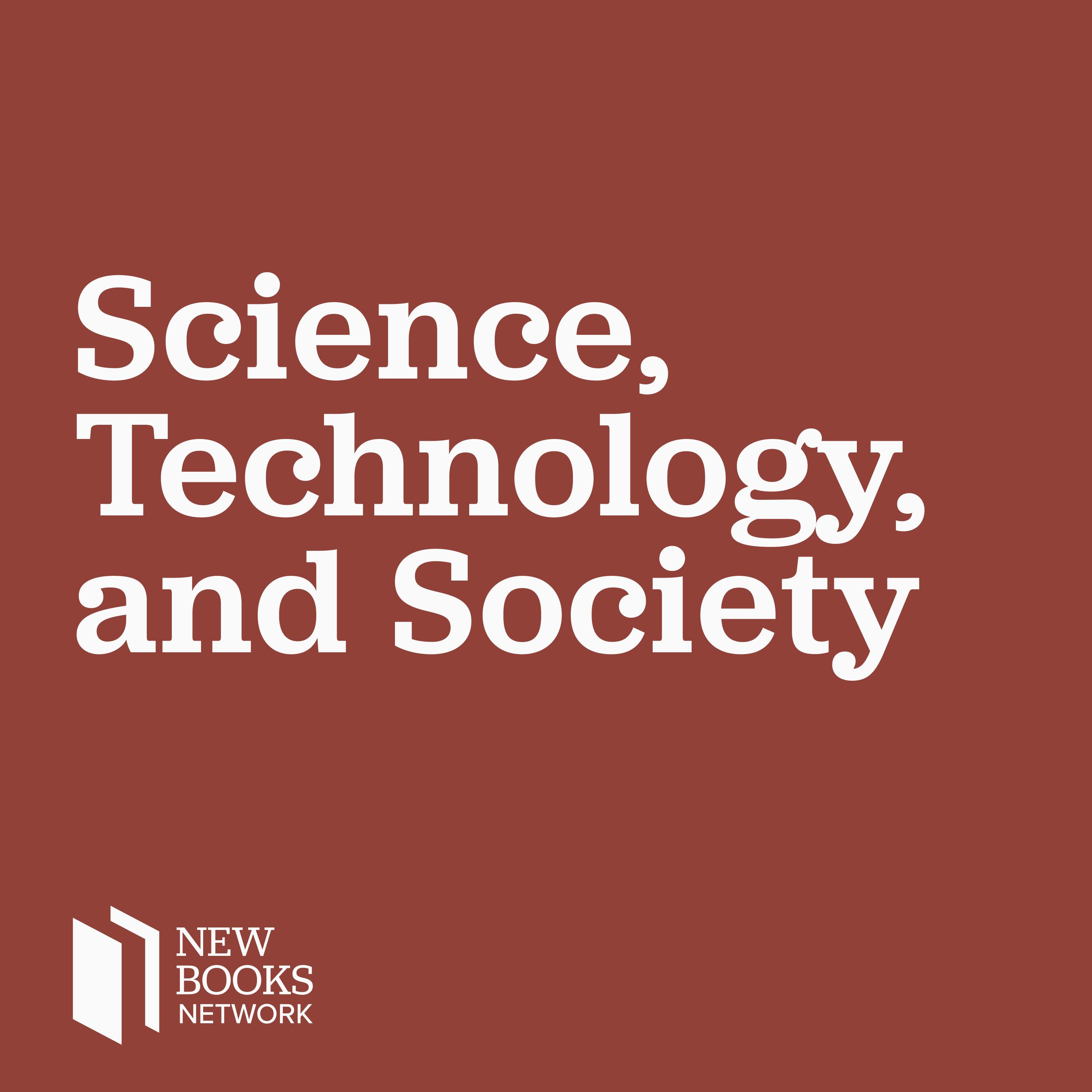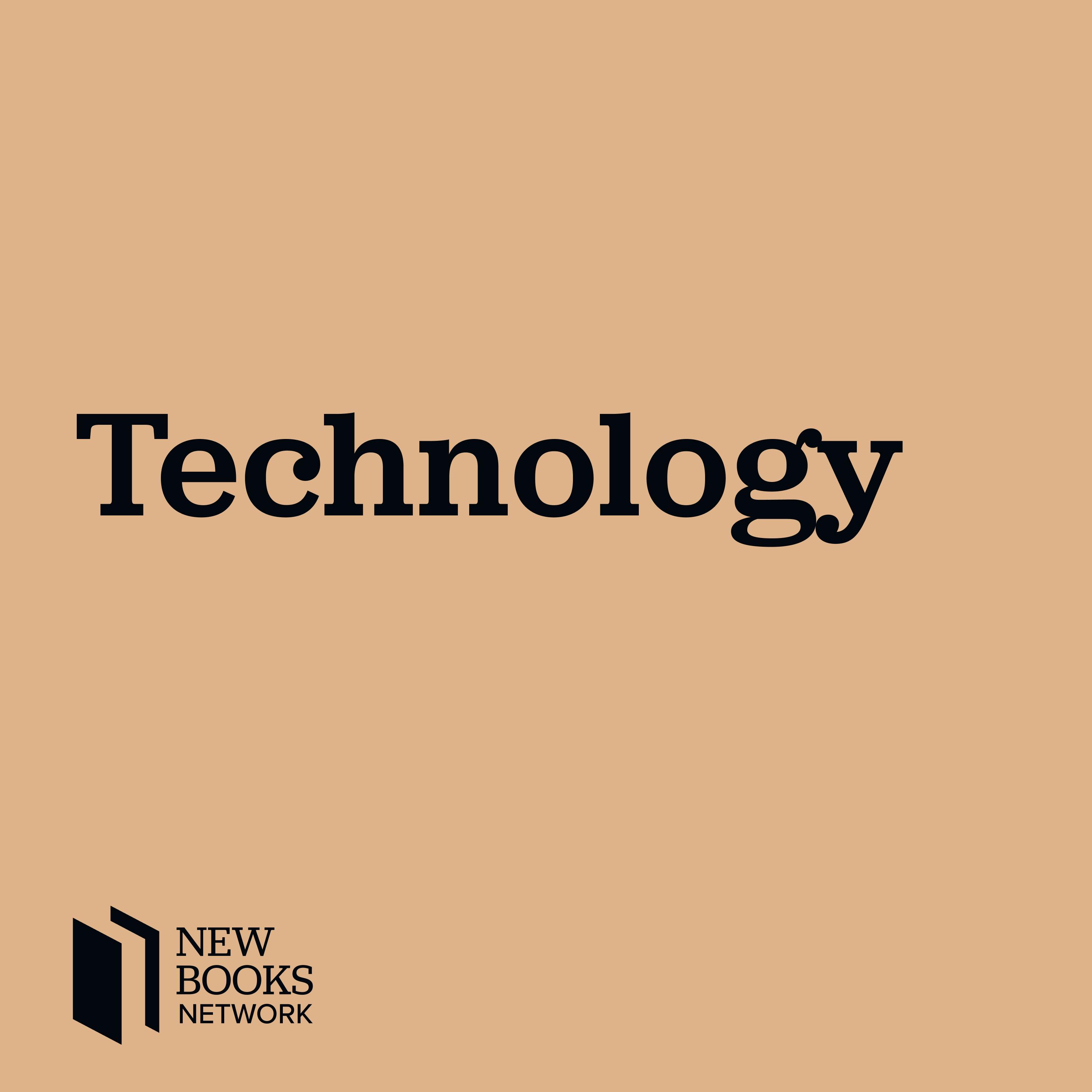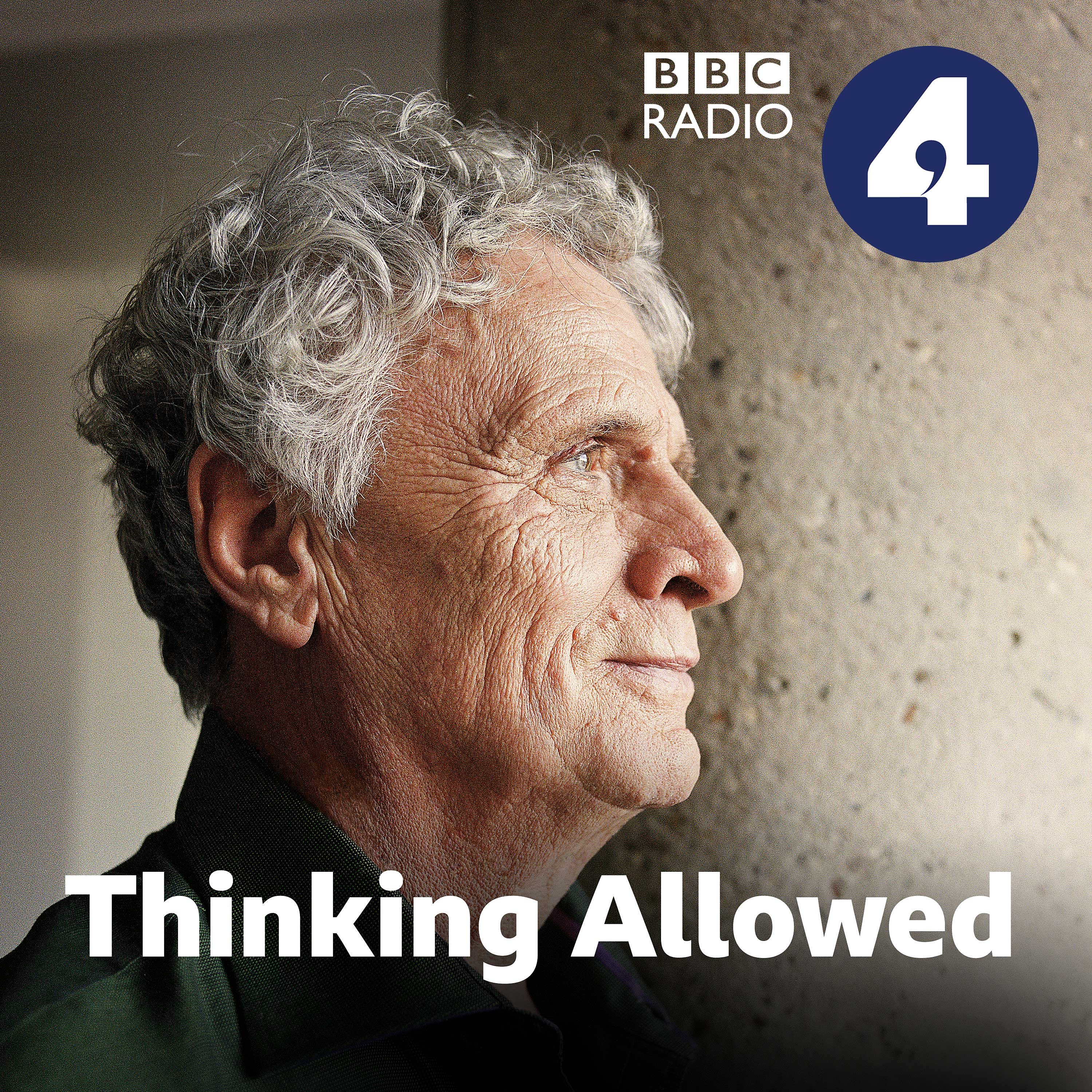Shows
 New Books in Critical TheoryMirca Madianou, "Technocolonialism: When Technology for Good is Harmful" (Polity, 2024)With over 300 million people in need of humanitarian assistance, and with emergencies and climate disasters becoming more common, AI and big data are being championed as forces for good and as solutions to the complex challenges of the aid sector.Technocolonialism: When Technology for Good is Harmful (Polity, 2024) argues, however, that digital innovation engenders new forms of violence and entrenches power asymmetries between the global South and North. Dr. Madianou develops a new concept, technocolonialism, to capture how the convergence of digital developments with humanitarian structures, state power and market forces reinvigorates and reshapes colonial legacies. The c...2025-02-011h 05
New Books in Critical TheoryMirca Madianou, "Technocolonialism: When Technology for Good is Harmful" (Polity, 2024)With over 300 million people in need of humanitarian assistance, and with emergencies and climate disasters becoming more common, AI and big data are being championed as forces for good and as solutions to the complex challenges of the aid sector.Technocolonialism: When Technology for Good is Harmful (Polity, 2024) argues, however, that digital innovation engenders new forms of violence and entrenches power asymmetries between the global South and North. Dr. Madianou develops a new concept, technocolonialism, to capture how the convergence of digital developments with humanitarian structures, state power and market forces reinvigorates and reshapes colonial legacies. The c...2025-02-011h 05 New Books in Human RightsMirca Madianou, "Technocolonialism: When Technology for Good is Harmful" (Polity, 2024)With over 300 million people in need of humanitarian assistance, and with emergencies and climate disasters becoming more common, AI and big data are being championed as forces for good and as solutions to the complex challenges of the aid sector.Technocolonialism: When Technology for Good is Harmful (Polity, 2024) argues, however, that digital innovation engenders new forms of violence and entrenches power asymmetries between the global South and North. Dr. Madianou develops a new concept, technocolonialism, to capture how the convergence of digital developments with humanitarian structures, state power and market forces reinvigorates and reshapes colonial legacies. The c...2025-02-011h 05
New Books in Human RightsMirca Madianou, "Technocolonialism: When Technology for Good is Harmful" (Polity, 2024)With over 300 million people in need of humanitarian assistance, and with emergencies and climate disasters becoming more common, AI and big data are being championed as forces for good and as solutions to the complex challenges of the aid sector.Technocolonialism: When Technology for Good is Harmful (Polity, 2024) argues, however, that digital innovation engenders new forms of violence and entrenches power asymmetries between the global South and North. Dr. Madianou develops a new concept, technocolonialism, to capture how the convergence of digital developments with humanitarian structures, state power and market forces reinvigorates and reshapes colonial legacies. The c...2025-02-011h 05 New Books with Miranda MelcherMirca Madianou, "Technocolonialism: When Technology for Good is Harmful" (Polity, 2024)With over 300 million people in need of humanitarian assistance, and with emergencies and climate disasters becoming more common, AI and big data are being championed as forces for good and as solutions to the complex challenges of the aid sector.Technocolonialism: When Technology for Good is Harmful (Polity, 2024) argues, however, that digital innovation engenders new forms of violence and entrenches power asymmetries between the global South and North. Dr. Madianou develops a new concept, technocolonialism, to capture how the convergence of digital developments with humanitarian structures, state power and market forces reinvigorates and reshapes colonial legacies. The c...2025-02-011h 05
New Books with Miranda MelcherMirca Madianou, "Technocolonialism: When Technology for Good is Harmful" (Polity, 2024)With over 300 million people in need of humanitarian assistance, and with emergencies and climate disasters becoming more common, AI and big data are being championed as forces for good and as solutions to the complex challenges of the aid sector.Technocolonialism: When Technology for Good is Harmful (Polity, 2024) argues, however, that digital innovation engenders new forms of violence and entrenches power asymmetries between the global South and North. Dr. Madianou develops a new concept, technocolonialism, to capture how the convergence of digital developments with humanitarian structures, state power and market forces reinvigorates and reshapes colonial legacies. The c...2025-02-011h 05 New Books in Science, Technology, and SocietyMirca Madianou, "Technocolonialism: When Technology for Good is Harmful" (Polity, 2024)With over 300 million people in need of humanitarian assistance, and with emergencies and climate disasters becoming more common, AI and big data are being championed as forces for good and as solutions to the complex challenges of the aid sector.Technocolonialism: When Technology for Good is Harmful (Polity, 2024) argues, however, that digital innovation engenders new forms of violence and entrenches power asymmetries between the global South and North. Dr. Madianou develops a new concept, technocolonialism, to capture how the convergence of digital developments with humanitarian structures, state power and market forces reinvigorates and reshapes colonial legacies. The c...2025-02-011h 05
New Books in Science, Technology, and SocietyMirca Madianou, "Technocolonialism: When Technology for Good is Harmful" (Polity, 2024)With over 300 million people in need of humanitarian assistance, and with emergencies and climate disasters becoming more common, AI and big data are being championed as forces for good and as solutions to the complex challenges of the aid sector.Technocolonialism: When Technology for Good is Harmful (Polity, 2024) argues, however, that digital innovation engenders new forms of violence and entrenches power asymmetries between the global South and North. Dr. Madianou develops a new concept, technocolonialism, to capture how the convergence of digital developments with humanitarian structures, state power and market forces reinvigorates and reshapes colonial legacies. The c...2025-02-011h 05 New Books in TechnologyMirca Madianou, "Technocolonialism: When Technology for Good is Harmful" (Polity, 2024)With over 300 million people in need of humanitarian assistance, and with emergencies and climate disasters becoming more common, AI and big data are being championed as forces for good and as solutions to the complex challenges of the aid sector.Technocolonialism: When Technology for Good is Harmful (Polity, 2024) argues, however, that digital innovation engenders new forms of violence and entrenches power asymmetries between the global South and North. Dr. Madianou develops a new concept, technocolonialism, to capture how the convergence of digital developments with humanitarian structures, state power and market forces reinvigorates and reshapes colonial legacies. The c...2025-02-011h 05
New Books in TechnologyMirca Madianou, "Technocolonialism: When Technology for Good is Harmful" (Polity, 2024)With over 300 million people in need of humanitarian assistance, and with emergencies and climate disasters becoming more common, AI and big data are being championed as forces for good and as solutions to the complex challenges of the aid sector.Technocolonialism: When Technology for Good is Harmful (Polity, 2024) argues, however, that digital innovation engenders new forms of violence and entrenches power asymmetries between the global South and North. Dr. Madianou develops a new concept, technocolonialism, to capture how the convergence of digital developments with humanitarian structures, state power and market forces reinvigorates and reshapes colonial legacies. The c...2025-02-011h 05 New Books in Politics and PolemicsMirca Madianou, "Technocolonialism: When Technology for Good is Harmful" (Polity, 2024)With over 300 million people in need of humanitarian assistance, and with emergencies and climate disasters becoming more common, AI and big data are being championed as forces for good and as solutions to the complex challenges of the aid sector.Technocolonialism: When Technology for Good is Harmful (Polity, 2024) argues, however, that digital innovation engenders new forms of violence and entrenches power asymmetries between the global South and North. Dr. Madianou develops a new concept, technocolonialism, to capture how the convergence of digital developments with humanitarian structures, state power and market forces reinvigorates and reshapes colonial legacies. The c...2025-02-011h 05
New Books in Politics and PolemicsMirca Madianou, "Technocolonialism: When Technology for Good is Harmful" (Polity, 2024)With over 300 million people in need of humanitarian assistance, and with emergencies and climate disasters becoming more common, AI and big data are being championed as forces for good and as solutions to the complex challenges of the aid sector.Technocolonialism: When Technology for Good is Harmful (Polity, 2024) argues, however, that digital innovation engenders new forms of violence and entrenches power asymmetries between the global South and North. Dr. Madianou develops a new concept, technocolonialism, to capture how the convergence of digital developments with humanitarian structures, state power and market forces reinvigorates and reshapes colonial legacies. The c...2025-02-011h 05 Latest 300 | LSE Public lectures and events | VideoTechnocolonialism: when technology for good is harmfulContributor(s): Professor Mirca Madianou | In this talk based on her new book, Mirca Madianou will argue that digital innovations such as biometrics and chatbots engender new forms of violence and entrench power asymmetries between the global south and north.
Drawing on ten years of research on the uses of digital technologies in humanitarian operations, Madianou will unearth the colonial power relations which shape ‘technology for good’ initiatives. The notion of technocolonialism captures how the convergence of digital infrastructures with humanitarian bureaucracy, state power and market forces reinvigorates and reshapes colonial legacies. Technocolonialism shifts the attention to the constitutive role that...2024-12-051h 31
Latest 300 | LSE Public lectures and events | VideoTechnocolonialism: when technology for good is harmfulContributor(s): Professor Mirca Madianou | In this talk based on her new book, Mirca Madianou will argue that digital innovations such as biometrics and chatbots engender new forms of violence and entrench power asymmetries between the global south and north.
Drawing on ten years of research on the uses of digital technologies in humanitarian operations, Madianou will unearth the colonial power relations which shape ‘technology for good’ initiatives. The notion of technocolonialism captures how the convergence of digital infrastructures with humanitarian bureaucracy, state power and market forces reinvigorates and reshapes colonial legacies. Technocolonialism shifts the attention to the constitutive role that...2024-12-051h 31 Latest 100 | LSE Public lectures and events | Audio and pdfTechnocolonialism: when technology for good is harmfulContributor(s): Professor Mirca Madianou | In this talk based on her new book, Mirca Madianou will argue that digital innovations such as biometrics and chatbots engender new forms of violence and entrench power asymmetries between the global south and north.
Drawing on ten years of research on the uses of digital technologies in humanitarian operations, Madianou will unearth the colonial power relations which shape ‘technology for good’ initiatives. The notion of technocolonialism captures how the convergence of digital infrastructures with humanitarian bureaucracy, state power and market forces reinvigorates and reshapes colonial legacies. Technocolonialism shifts the attention to the constitutive role that...2024-12-051h 31
Latest 100 | LSE Public lectures and events | Audio and pdfTechnocolonialism: when technology for good is harmfulContributor(s): Professor Mirca Madianou | In this talk based on her new book, Mirca Madianou will argue that digital innovations such as biometrics and chatbots engender new forms of violence and entrench power asymmetries between the global south and north.
Drawing on ten years of research on the uses of digital technologies in humanitarian operations, Madianou will unearth the colonial power relations which shape ‘technology for good’ initiatives. The notion of technocolonialism captures how the convergence of digital infrastructures with humanitarian bureaucracy, state power and market forces reinvigorates and reshapes colonial legacies. Technocolonialism shifts the attention to the constitutive role that...2024-12-051h 31 Latest 100 | LSE Public lectures and events | AudioTechnocolonialism: when technology for good is harmfulContributor(s): Professor Mirca Madianou | In this talk based on her new book, Mirca Madianou will argue that digital innovations such as biometrics and chatbots engender new forms of violence and entrench power asymmetries between the global south and north.
Drawing on ten years of research on the uses of digital technologies in humanitarian operations, Madianou will unearth the colonial power relations which shape ‘technology for good’ initiatives. The notion of technocolonialism captures how the convergence of digital infrastructures with humanitarian bureaucracy, state power and market forces reinvigorates and reshapes colonial legacies. Technocolonialism shifts the attention to the constitutive role that...2024-12-051h 31
Latest 100 | LSE Public lectures and events | AudioTechnocolonialism: when technology for good is harmfulContributor(s): Professor Mirca Madianou | In this talk based on her new book, Mirca Madianou will argue that digital innovations such as biometrics and chatbots engender new forms of violence and entrench power asymmetries between the global south and north.
Drawing on ten years of research on the uses of digital technologies in humanitarian operations, Madianou will unearth the colonial power relations which shape ‘technology for good’ initiatives. The notion of technocolonialism captures how the convergence of digital infrastructures with humanitarian bureaucracy, state power and market forces reinvigorates and reshapes colonial legacies. Technocolonialism shifts the attention to the constitutive role that...2024-12-051h 31 All items | LSE Public lectures and events | Audio and pdfTechnocolonialism: when technology for good is harmfulContributor(s): Professor Mirca Madianou | In this talk based on her new book, Mirca Madianou will argue that digital innovations such as biometrics and chatbots engender new forms of violence and entrench power asymmetries between the global south and north.
Drawing on ten years of research on the uses of digital technologies in humanitarian operations, Madianou will unearth the colonial power relations which shape ‘technology for good’ initiatives. The notion of technocolonialism captures how the convergence of digital infrastructures with humanitarian bureaucracy, state power and market forces reinvigorates and reshapes colonial legacies. Technocolonialism shifts the attention to the constitutive role that...2024-12-051h 31
All items | LSE Public lectures and events | Audio and pdfTechnocolonialism: when technology for good is harmfulContributor(s): Professor Mirca Madianou | In this talk based on her new book, Mirca Madianou will argue that digital innovations such as biometrics and chatbots engender new forms of violence and entrench power asymmetries between the global south and north.
Drawing on ten years of research on the uses of digital technologies in humanitarian operations, Madianou will unearth the colonial power relations which shape ‘technology for good’ initiatives. The notion of technocolonialism captures how the convergence of digital infrastructures with humanitarian bureaucracy, state power and market forces reinvigorates and reshapes colonial legacies. Technocolonialism shifts the attention to the constitutive role that...2024-12-051h 31 All items | LSE Public lectures and events | All media typesTechnocolonialism: when technology for good is harmfulContributor(s): Professor Mirca Madianou | In this talk based on her new book, Mirca Madianou will argue that digital innovations such as biometrics and chatbots engender new forms of violence and entrench power asymmetries between the global south and north.
Drawing on ten years of research on the uses of digital technologies in humanitarian operations, Madianou will unearth the colonial power relations which shape ‘technology for good’ initiatives. The notion of technocolonialism captures how the convergence of digital infrastructures with humanitarian bureaucracy, state power and market forces reinvigorates and reshapes colonial legacies. Technocolonialism shifts the attention to the constitutive role that...2024-12-051h 31
All items | LSE Public lectures and events | All media typesTechnocolonialism: when technology for good is harmfulContributor(s): Professor Mirca Madianou | In this talk based on her new book, Mirca Madianou will argue that digital innovations such as biometrics and chatbots engender new forms of violence and entrench power asymmetries between the global south and north.
Drawing on ten years of research on the uses of digital technologies in humanitarian operations, Madianou will unearth the colonial power relations which shape ‘technology for good’ initiatives. The notion of technocolonialism captures how the convergence of digital infrastructures with humanitarian bureaucracy, state power and market forces reinvigorates and reshapes colonial legacies. Technocolonialism shifts the attention to the constitutive role that...2024-12-051h 31 Latest 100 | LSE Public lectures and events | All media typesTechnocolonialism: when technology for good is harmfulContributor(s): Professor Mirca Madianou | In this talk based on her new book, Mirca Madianou will argue that digital innovations such as biometrics and chatbots engender new forms of violence and entrench power asymmetries between the global south and north.
Drawing on ten years of research on the uses of digital technologies in humanitarian operations, Madianou will unearth the colonial power relations which shape ‘technology for good’ initiatives. The notion of technocolonialism captures how the convergence of digital infrastructures with humanitarian bureaucracy, state power and market forces reinvigorates and reshapes colonial legacies. Technocolonialism shifts the attention to the constitutive role that...2024-12-051h 31
Latest 100 | LSE Public lectures and events | All media typesTechnocolonialism: when technology for good is harmfulContributor(s): Professor Mirca Madianou | In this talk based on her new book, Mirca Madianou will argue that digital innovations such as biometrics and chatbots engender new forms of violence and entrench power asymmetries between the global south and north.
Drawing on ten years of research on the uses of digital technologies in humanitarian operations, Madianou will unearth the colonial power relations which shape ‘technology for good’ initiatives. The notion of technocolonialism captures how the convergence of digital infrastructures with humanitarian bureaucracy, state power and market forces reinvigorates and reshapes colonial legacies. Technocolonialism shifts the attention to the constitutive role that...2024-12-051h 31 All items | LSE Public lectures and events | AudioTechnocolonialism: when technology for good is harmfulContributor(s): Professor Mirca Madianou | In this talk based on her new book, Mirca Madianou will argue that digital innovations such as biometrics and chatbots engender new forms of violence and entrench power asymmetries between the global south and north.
Drawing on ten years of research on the uses of digital technologies in humanitarian operations, Madianou will unearth the colonial power relations which shape ‘technology for good’ initiatives. The notion of technocolonialism captures how the convergence of digital infrastructures with humanitarian bureaucracy, state power and market forces reinvigorates and reshapes colonial legacies. Technocolonialism shifts the attention to the constitutive role that...2024-12-051h 31
All items | LSE Public lectures and events | AudioTechnocolonialism: when technology for good is harmfulContributor(s): Professor Mirca Madianou | In this talk based on her new book, Mirca Madianou will argue that digital innovations such as biometrics and chatbots engender new forms of violence and entrench power asymmetries between the global south and north.
Drawing on ten years of research on the uses of digital technologies in humanitarian operations, Madianou will unearth the colonial power relations which shape ‘technology for good’ initiatives. The notion of technocolonialism captures how the convergence of digital infrastructures with humanitarian bureaucracy, state power and market forces reinvigorates and reshapes colonial legacies. Technocolonialism shifts the attention to the constitutive role that...2024-12-051h 31 MIT Comparative Media Studies/WritingThe Mediated Construction of Reality - From Berger and Luckmann to Norbert EliasNick Couldry outlined the project of his recent book, The Mediated Construction of Reality (Polity October 2016, co-written with Andreas Hepp). The book offers a critical reevaluation and rearticulation of the social constructivist ambitions of Berger and Luckmann’s 1966 book The Social Construction of Reality while radically rethinking the implications of this for a world saturated not just with digital media, but with data processes. Couldry outlined how a materialist phenomenology can draw not just on traditional phenomenology, but on the social theory of Norbert Elias, particularly his concept of figurations, to address the challenges of social analysis in the face of...2017-09-291h 28
MIT Comparative Media Studies/WritingThe Mediated Construction of Reality - From Berger and Luckmann to Norbert EliasNick Couldry outlined the project of his recent book, The Mediated Construction of Reality (Polity October 2016, co-written with Andreas Hepp). The book offers a critical reevaluation and rearticulation of the social constructivist ambitions of Berger and Luckmann’s 1966 book The Social Construction of Reality while radically rethinking the implications of this for a world saturated not just with digital media, but with data processes. Couldry outlined how a materialist phenomenology can draw not just on traditional phenomenology, but on the social theory of Norbert Elias, particularly his concept of figurations, to address the challenges of social analysis in the face of...2017-09-291h 28 Social Science BitesWhose Work Most Influenced You? A Social Science Bites Retrospective, Part 3Ask a number of influential social scientists who in turn influenced them, and you’d likely get a blue-ribbon primer on the classics in social science. Wright Mills’ The Sociological Imagination. Ernest Becker’s The Denial of Death. Irving Goffman’s The Presentation of Self in Everyday Life. Emile Durkheim’s Suicide. Michel Foucault’s The Archaeology of Knowledge. During the recording of every Social Science Bites podcast, the guest has been asked the following: Which piece of social science research has most inspired or most influenced you? And now, in honor of the 50th Bites podcast t...2017-05-1611 min
Social Science BitesWhose Work Most Influenced You? A Social Science Bites Retrospective, Part 3Ask a number of influential social scientists who in turn influenced them, and you’d likely get a blue-ribbon primer on the classics in social science. Wright Mills’ The Sociological Imagination. Ernest Becker’s The Denial of Death. Irving Goffman’s The Presentation of Self in Everyday Life. Emile Durkheim’s Suicide. Michel Foucault’s The Archaeology of Knowledge. During the recording of every Social Science Bites podcast, the guest has been asked the following: Which piece of social science research has most inspired or most influenced you? And now, in honor of the 50th Bites podcast t...2017-05-1611 min Social Science BitesMirca Madianou on Technology and Everyday LifeIt's often remarked that technology has made the world a smaller place. While this has been especially true for those with the wherewithal to buy the latest gadget and to travel at will, but it's also true for economic migrants. Those technological ties are one of the key research interests of Mirca Madianou, a reader in the Department of Media and Communications at Goldsmiths, University of London. In this Social Science Bites podcast, Madianou details several foundational shifts "transnational families," those families where breadwinners -- and prospective breadwinners -- head far away to help support their family m...2016-06-1517 min
Social Science BitesMirca Madianou on Technology and Everyday LifeIt's often remarked that technology has made the world a smaller place. While this has been especially true for those with the wherewithal to buy the latest gadget and to travel at will, but it's also true for economic migrants. Those technological ties are one of the key research interests of Mirca Madianou, a reader in the Department of Media and Communications at Goldsmiths, University of London. In this Social Science Bites podcast, Madianou details several foundational shifts "transnational families," those families where breadwinners -- and prospective breadwinners -- head far away to help support their family m...2016-06-1517 min Word of MouthTalking or Texting?We take it for granted that we can maintain our friendships and family relationships now in so many ways: phone, voicemail, email, text, instant message, Facebook, Skype.. but do we have any idea of the effects of these very different modes of communication? Michael Rosen and Dr Laura Wright look at research into their emotional impact.
Leslie Seltzer is Research Associate at the University of Wisconsin-Madison, and has tested the differing effects of a hug, a phone call and a text between mothers and daughters.
Dr Mirca Madianou is Reader in Media and Communications at Goldsmiths, University of London...2016-02-2327 min
Word of MouthTalking or Texting?We take it for granted that we can maintain our friendships and family relationships now in so many ways: phone, voicemail, email, text, instant message, Facebook, Skype.. but do we have any idea of the effects of these very different modes of communication? Michael Rosen and Dr Laura Wright look at research into their emotional impact.
Leslie Seltzer is Research Associate at the University of Wisconsin-Madison, and has tested the differing effects of a hug, a phone call and a text between mothers and daughters.
Dr Mirca Madianou is Reader in Media and Communications at Goldsmiths, University of London...2016-02-2327 min Thinking AllowedPrivacy and parenting by mobile phone.What is personal, what is confidential and what is private? These are all questions which are addressed in a new sociological study of the nature of privacy. Christena Nippert-Eng claims that 'privacy violations' are particularly damaging because they go to the heart of our rights to determine ourselves as individuals. Her work brings precision to an analysis of current reactions to the unwarranted intrusions of the press.
Also on the programme, how the millions of migrants from the Philippines attempt to parent their stay at home children by mobile phone. Do they think they are successful? Do their children...2011-07-2028 min
Thinking AllowedPrivacy and parenting by mobile phone.What is personal, what is confidential and what is private? These are all questions which are addressed in a new sociological study of the nature of privacy. Christena Nippert-Eng claims that 'privacy violations' are particularly damaging because they go to the heart of our rights to determine ourselves as individuals. Her work brings precision to an analysis of current reactions to the unwarranted intrusions of the press.
Also on the programme, how the millions of migrants from the Philippines attempt to parent their stay at home children by mobile phone. Do they think they are successful? Do their children...2011-07-2028 min